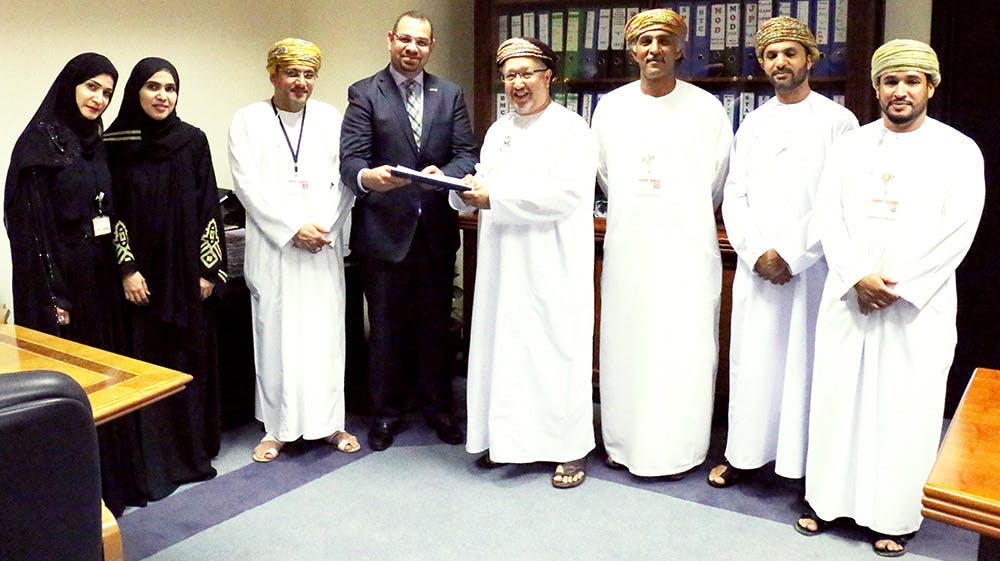
The Central Bank of Oman Awards ProgressSoft Several Payment Solution Projects
Muscat - August 16, 2015

ProgressSoft, the leading provider of real-time payment solutions, kicked off a number of payment projects today with the Central Bank of Oman (CBO) targeting the automation of various clearing house services, which CBO offers to the banks and their customers in the Sultanate.
The scope of these collective projects will include the implementation of ProgressSoft’s Automated Clearing House solution (PS-ACH), the Mandate Management System (PS-ACH/MMS), the Wages Protection System (PS-ACH/WPS), the Electronic Bill Presentment and Payment (PS-EBPP), the Mobile Payment Clearing System (PS-mpClear) and the Payments Dispute Management System (PS-DisputeManager).
PS-ACH will cater for all domestic Credit and Direct Debit Fund Transfers between banks operating in Oman; where the entire system - including both the Central and the Participant modules - will be hosted in ASP mode at CBO Datacenters, providing sophisticated functionalities and processing needs to all 25 banks operating in the country.
Furthermore, the PS-ACH Direct Debit Module will be coupled - and seamlessly integrated - with the Mandate Management System that provides total automation of the mandate generation, exchange and verification processes between participating banks.
The Mandate Management System offers banks and billers the ability to initiate and manage e-mandates as a mean to pre-authorize and verify eligible direct debit transactions. It also offers real-time validations and matching between direct debit transactions and their corresponding mandates. These validations include checks on the validity of the mandate status as well as payment terms and conditions.
ProgressSoft will also be implementing a Wages Protection System module within the PS-ACH software solution (PS-ACH/WPS). The system is intended to provide monitoring and reporting facilities to the Ministry of Manpower to oversee salary payments conducted within and between banks on behalf of corporations and employers. The system ensures that employers are paying their employees’ salaries in full and on time by providing the tools to submit payments and the reports to verify their adherence to it.
The scope also includes a Mobile Payment Clearing and Switching System (PS-mpClear), which is a real-time payment switch responsible for processing inter-bank and inter-processor mobile payment transactions. PS-mpClear supports the processing and switching mobile financial and non-financial transactions in Straight Through Processing (STP) basis and routing messages between multiple mobile payment service providers.
This ambitious project award sets only a few months following the award of the Electronic Image-based Check Clearing System Upgrade, which is running in the sultanate since January 2009. “We are currently concluding the Requirements Specification Phase (RSP) with CBO and the banks for phase one of the project and will start the RSP for phase two after eight weeks.” said Mr. Anan Alwanni, ProgressSoft Country Manager in Oman.
A Bill Presentment and Payment System (PS-EBPP) will also be implemented within the same project scope, where it functions as a centralized system that facilitates bill presentment, inquiry and payment transactions for consumers. PS-EBPP acts as hub or as an aggregator, which enables the connectivity of various Service Providers to avail their billing information in electronic format. Furthermore, The System works in connection with the PS-ACH and PS-mpClear to facilitate the payment part of the solution; it can also provide the interfaces for other systems to utilize its services such as online banking.
The above systems will be coupled with a one of a kind Dispute Management System (PS-DisputeManager) that provides case management processing for multiple payment channels via an automated workflow, task automation and rules management to avail a controlled environment to process issues and reach transaction resolution within a defined service-level standard.
The system enables the central bank to review, conduct oversight activities and at times interfere in the final decision-making and verdict. In addition, it provides visibility to issues at any stage during the lifecycle of the dispute.